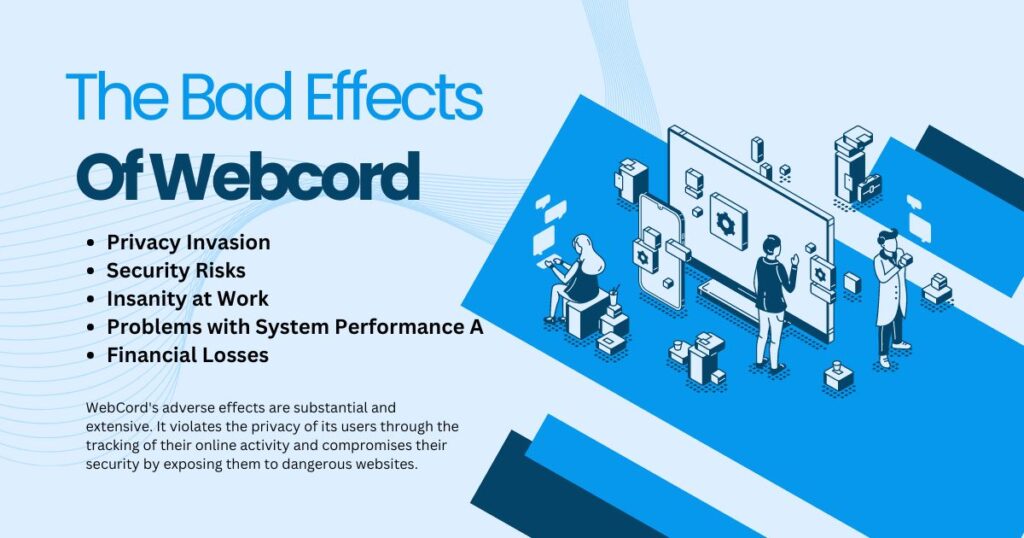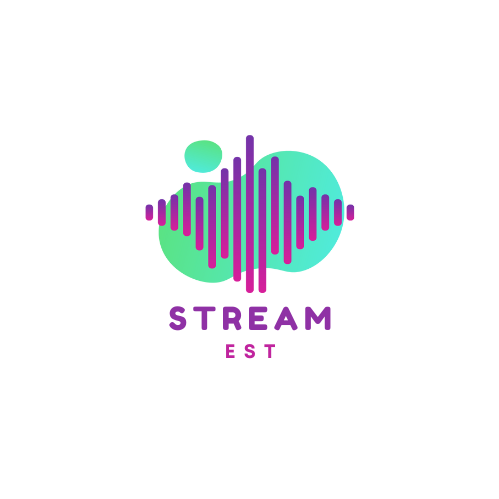Webcode is a malicious program. It is a virus that can be described as a malicious virus. WebCord Virus hijacks your browser’s search engines(Firefox and Chrome) as well as your browser’s homepage. Also, it displays advertisements that are not desired and are secured by the site you are browsing. Webcode Browser Hijacker can redirect your queries from search engines and redirect you to unsafe websites after being installed on your PC. This virus can disrupt your activities and steal your personal information. This virus’s capability to attack all computers is a massive issue in the world of digital. We will discuss the Webcode virus in depth. Its definition and the way it operates.
In this age of digital technology, being aware of the threats posed by various malicious software applications is of vital importance. One example is WebCord Virus, a term that frequently gets misinterpreted with similar dangers such as Web code. This blog article explains the meaning of the WebCord Virus, what it is, how it functions, and the positive and negative effects it can have on users.
What Is Webcord Virus?
WebCord Virus is malicious software, often described as a browser hijacker. It can pose a serious threat to internet security. It infiltrates browsers like Chrome and Firefox, changing their settings without the user’s permission. After installation, WebCord Virus changes the homepage, default search engine, and new tab page to a set of URLs, frequently creating ad-laden or suspicious sites.
WebCord’s primary purpose is to interfere with users’ browsing experience. It accomplishes this by redirecting searches through controlled search engines, displaying intrusive ads, and triggering frequent redirections to sites that could be harmful. This can disrupt internet browsing and make it challenging for people to use the Internet effectively.
WebCord Virus is often distributed through bundles of software downloads, phishing emails, and vis; it’s to compromise update websites. Users can install WebCord Viruson websites by downloading software for free from untrustworthy websites or clicking on misleading links in email messages or pop-ups.
More than just the immediate disruption, WebCord Virus poses severe privacy security and privacy risks. It monitors user browsing habits and gathers personal data that could be sold to marketers or utilized for malicious reasons. These persistent advertisements and redirections may also affect the performance of your system, thereby reducing the user’s experience.
In short, WebCord Virus is a dangerous browser hijacker that can compromise user security, privacy, and the general browsing experience. Being aware and taking proactive steps are crucial in defending from such risks, highlighting the necessity of downloading programs from trusted sources, and ensuring solid cybersecurity procedures.
How Webcord Virus Infiltrates Your System

WebCord may be able to access your computer in a variety of ways:
- Bundled Software: Most often, WebCord Virus comes bundled with no-cost software downloads, which are downloaded from suspicious sources. When installing, users could agree to install WebCord Virus without knowing it.
- Phishing Emails: Cybercriminals employ fraudulent emails that contain either attachments or links that, upon clicking, install WebCord Virus on your PC.
- Malicious sites: Visits to sites that are malicious or compromised can cause automatic downloading of WebCord.
- False software updates: pop-ups telling you that the software you are together is out of date can convince you to download WebCord Virus in disguise as updating.
How Webcord Virus Works
- Intrusion: WebCord Virus generally enters systems via bundled software and downloads emails containing phishing messages and access to malicious sites.
- Browser Settings Modification: After being installed, WebCord Virus alters the browser’s settings, including the default homepage, search engine, and brand new tab pages, to their specific URLs.
- Redirection: The redirection of search results to its search engines controlled by the company can result in ad-laden or malicious sites.
- Advertisement: Display WebCord Virus bombards browsers with annoying advertisements that disrupt users’ experience of browsing.
- Data Acquisition: The malware monitors users’ browsing habits and then collects data that can later be used for marketing and other harmful actions.
- Performance Impact: Continuous loading of advertisements and redirections may dramatically slow down the system’s performance.
- Privacy Invasion: Through recording user actions, WebCord Virus compromises user privacy and could lead to the disclosure of personal information.
- Security Risks: Redirects to malicious sites can cause additional malware infections or even scams.
In short, WebCord Virus works by infiltrating systems, changing browser preferences, redirecting inquiries, showing unwanted advertisements, and storing user information that affects system performance, creating privacy issues and security risks. Knowing how WebCord Virus functions is vital for anyone who wants to safeguard themselves from these malicious dangers.
The Bad Effects Of Webcord

- Privacy Invasion: WebCord records users’ web browsing actions, which could compromise their privacy and possibly expose private data.
- Security Risks: When it redirects users to harmful web pages, WebCord Virus exposes them to more malware infections or phishing attacks, which increases security risks.
- Insanity at Work: Continuous advertisements and redirections to websites disrupt the online experience, reducing productivity.
- Problems with System Performance A: The increased demand from ad loading and redirections could slow the computer and affect its general performance.
- Financial Losses: WebCord’s theft of data may result in financial loss, particularly when sensitive data such as banking details are stolen.
The Good Effects Of Webcord
- Sensitivity and education: Being aware of risks like the WebCord Virus creates awareness about cyber security and prompts users to develop safer internet routines.
- Improved Cybersecurity: Measures Threats such as WebCord Virus stimulate the creation of more robust security tools and measures to safeguard users.
- Security Among Users: The knowledge of WebCord Virus is a great way to encourage users to be cautious about the software they download and the sites they browse.
WebCord’s adverse effects are substantial and extensive. It violates the privacy of its users through the tracking of their online activity and compromises their security by exposing them to dangerous websites. It disrupts their activities through intrusive redirections and ads, which can cause problems with system performance as well as financial loss. Understanding the impact will result in positive effects like an improvement in awareness, better security measures, and greater security awareness among consumers.
How To Protect Yourself From Webcord
To prevent infection by WebCord Virus is a proactive approach:
- Be cautious when downloading: Be cautious when downloading software: Download only from trusted sources. Beware of pop-ups and advertisements which prompt users to download a program.
- Install antivirus software: Make sure you use a reliable antivirus program that can stop and detect malicious software such as WebCord Virus.
- Install Updates on Software Regularly: Keep your operating system and program current to guard against known weaknesses.
- Beware of Phishing Scams: Be aware of messages and emails that are not from you. Beware of clicking on hyperlinks or downloading attachments that come from untrusted sources.
- Utilize ad blockers: Install ad blockers to stop intrusive advertisements from appearing on your Internet.
How To Remove Webcord

If WebCord Virus is infecting your computer, take these steps to get rid of WebCord:
- Remove suspicious programs: Visit your computer’s Control Panel and uninstall any unknown programs connected to WebCord.
- Reset Settings for Browser: Reset your browser’s settings to default settings in order to erase any changes created by WebCord Virus.
- Complete a System Scanning: Make use of your antivirus program to conduct a comprehensive analysis of your system, and eliminate any threats that are detected.
- Clear the Browser Cache: Clearing your browser’s cache and cookies could help get rid of any remnants left from WebCord.
Conclusion
To conclude, WebCord Virus poses a significant risk to online security as well as users’ privacy. A browser hijacker penetrates systems, obtains control of the browsers, and interrupts browsing by redirecting users to harmful websites and showing intrusive advertisements. WebCord’s effects WebCord Virus are privacy-related and security threats, interruption of system operation, problems with performance, and the possibility of financial loss.
However, awareness and knowledge of WebCord Virus could lead to positive results. Recognizing the potential risks of WebCord Virus will encourage users to adopt safer browsing practices, like downloading software from trusted sources and being wary of phishing scams. In addition, the emergence of security threats such as WebCord is the reason for developing more secure security measures that ultimately benefit all users.
In order to protect yourself from WebCord Virus as well as other threats, it’s essential to download trusted antivirus software to ensure that running operating systems and programs are up-to-date. Beware of clicking dangerous links or downloading attachments downloaded from unknown sources. By being vigilant and proactive, users are able to reduce WebCord’s threats and help create a safer online security environment.
FAQ,s
- What is WebCord?
- WebCord is a browser hijacker, a form of malware that controls web browsers like Chrome and Firefox, changing their settings without the user’s approval. The most common change is to alter the default homepage, search engine, and tab pages to their designated URLs, resulting in unwanted advertising and redirections to suspect sites.
- What is the process by which WebCord affects computer systems?
- WebCord is able to infect PCs in a variety of ways, including the download of bundled software and phishing emails. It also can cause visiting websites that are compromised or fake software updates. Users can install WebCord by downloading software for free or clicking on misleading websites.
- What exactly are the results from WebCord?
- WebCord could have a variety of negative consequences, such as the invasion of privacy due to tracking users’ activities while browsing, security threats from exposing users’ sites, disruptions from intrusive advertisements and redirections, issues with performance, and loss of money.
- How do I safeguard my system against WebCord?
- To protect your computer from WebCord, it is vital to download legitimate software sources. Beware of scams, download trusted antivirus software, ensure that your operating system and software are current, and install ad blockers to avoid annoying ads from showing up in your browser.
- How can I uninstall WebCord from my PC?
- For removing WebCord from your PC, it is possible to remove all dangerous programs from the Control Panel, reset your preferences to default, and run a complete security scan of your system together with an antivirus program to identify any malware, as well as clear the cache and cookies in order to eliminate all traces of WebCord.






